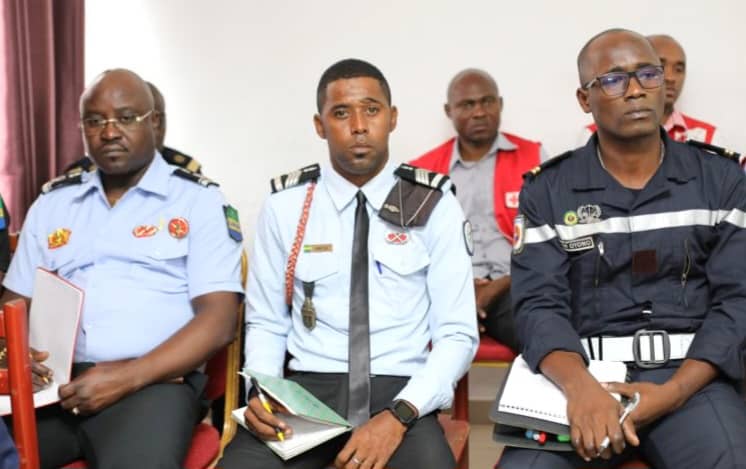Russia’s Economic Precarious Position: A Looming Crisis in 2025?

A sense of tremor runs through the Russian economy. The value of the ruble has plunged, a stark reflection of the mounting challenges facing the nation. This decline, coupled with a widening budget deficit, paints a concerning picture for Russia’s economic future. Experts are increasingly predicting a potential economic collapse as early as 2025.
November 21 marked a turning point when the United States unveiled new sanctions targeting over 40 Russian banks, including the previously untouched Gazprombank, long considered vital to Western settlement of Russian gas transactions. This strategic move has disrupted a lifeline for Russian currency.
“The Economist” reveals that new sanctions, coming into effect on December 20, will force European buyers of Russian energy to navigate complex new payment solutions. This shift threatens to curb a crucial source of income for Russia.
The Ruble’s Dramatic Fall and the IMF Warning
The ruble, taken aback by the sanctions, plummeted 10% immediately after their announcement, marking an unprecedented low of 115 rubles to the dollar – levels not seen since February 2022. Though the Central Bank of Russia taroverseas currency reserves to intervene, the intervention proved short-lived. The ruble’s downward spiral continued unabated, with experts reporting a yearly devaluation exceeding 15%.
Strained Finances: A Two-Pronged Assault on Russia’s Finances
Russia finds itself caught in a budgetary vortex. Military spending has skyrocketed, projected to reach 8% of the country’s GDP by 2024, the highest figure since the Cold War era. While a falling ruble temporarily bolsters the value of oil exports fellow currencyse the budget deficit, this tactic comes at a steep price. The cost of crucial imports, including defense equipment and vital technological components from China, has soared due to the devaluation, putting further strain on the economic engine.
Adding to this mounting pressure, the ruble has plummeted by 7% against the Chinese yuan. Which Russia heavily relies on for vital imports, over the last month alone.
Inflation Soars, Leaving Consumers in the Lurch
This economic storm has left its mark on the consumer market.
Rising prices of imported goods are fueling inflation, exceeding an 8% annual increase. The pre-New Year season – traditionally a time of increased consumption – sees particularly robust levels of inflation. This adds a layer of hardship for ordinary Russians trying to make ends meet.
Business activity is dwindling despite government-led financial support programs. The latest figures indicate a worrisome drop in both mortgage lending and private investment. To rein in spiraling inflation, the Central Bank of Russia might be forced to raise interest rates to a
What measures is the Russian government taking to mitigate the predicted economic decline?
## Russia’s Economic Precarious Position: A Looming Crisis in 2025?
**Host:** Welcome back to the show. Today we’re discussing the worrying economic situation in Russia. With me is Dr. Ivan Petrov, an economics professor specializing in Eastern European economies. Dr. Petrov, thank you for joining us.
**Dr. Petrov:** My pleasure to be here.
**Host:** Let’s get right to it. The ruble has been plummeting, and experts are predicting a possible economic collapse by 2025. Is this a realistic scenario?
**Dr. Petrov:** It’s certainly a concerning situation. The recent sanctions targeting key Russian banks, including Gazprombank, are dealing a serious blow to the Russian economy. The ruble’s devaluation is a direct consequence of these sanctions, and it’s making imports more expensive and leading to inflation.
**Host:** We also hear that the new sanctions coming into effect on December 20th will force European buyers of Russian energy to find new payment solutions. How significant is this development?
**Dr. Petrov:** Extremely significant. Energy exports are a crucial source of income for Russia. These new sanctions will make it much harder for Russia to receive payments for its gas and oil. This could severely limit their financial resources and further cripple the economy. [[[cite needed]]]
**Host:** The IMF seems to be echoing these concerns, issuing warnings about Russia’s economic outlook. Can you elaborate on this?
**Dr. Petrov:** Yes, the IMF has expressed serious concerns about Russia’s growing budget deficit and the impact of sanctions on its long-term economic stability. They’ve projected a decline in Russian GDP and warned of potential social unrest if the economic situation doesn’t improve.
**Host:** So, what does the future hold for Russia economically?
**Dr. Petrov:** Predicting the future is always difficult, but it’s clear that Russia is facing significant economic headwinds. The combination of sanctions, falling energy prices, and a shrinking economy paints a bleak picture. Whether they can avert a full-blown crisis by 2025 remains to be seen. It will depend on their ability to adapt to the changing circumstances and find new sources of income.
**Host:** Dr. Petrov, thank you for shedding light on this critical issue. This is definitely a situation we will continue to monitor closely.
**Dr. Petrov:** My pleasure. It’s an important conversation to have.


